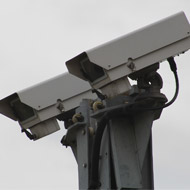Vets denied access to slaughterhouse footage

Ninety per cent of slaughterhouses in the UK have CCTV aimed at monitoring and improving animal welfare at slaughter.
British vets are reiterating their call for mandatory CCTV in slaughterhouses and legislation to ensure vets have unrestricted access to the footage.
The call comes as filming by an animal welfare organisation uncovers serious abuse of animals at the Simply Halal abattoir in Norfolk, despite the fact CCTV was installed. The footage is reported not to have been stored.
Figures from the Food Standards Agency reported in The Times suggest that over 30 slaughterhouses refused to share footage with vets working in slaughterhouses under the authority of the FSA.
According to the FSA’s own figures, 90 per cent of slaughterhouses in the UK have CCTV aimed at monitoring and improving animal welfare at slaughter. Yet the BVA and the Veterinary Public Health Association (VPHA) have urgent concern that the purpose of CCTV in slaughterhouses is fundamentally undermined if official veterinarians (OVs) are refused access to the footage.
Under the current law OVs have a right to request and see the footage if they have cause for concern that abuse may be occurring. However, if this needs to be enforced though the courts, the process can be protracted.
“It is unacceptable that there are slaughterhouses that are not willing to share CCTV footage with official veterinarians,” commented BVA president Sean Wensley.
“We are lobbying for CCTV to be mandatory in all slaughterhouses and for legislation to ensure that footage is readily available to vets. We need to foster a culture of compassion in slaughterhouses, coupled with robust and effective enforcement, so that the animals we farm for food have both a good life and a humane death.”
VPHA president Lewis Grant added: “The promotion of good animal welfare is fundamental to the core values of the VPHA and the ability of OVs in slaughterhouses to freely monitor the activities at the point of slaughter would not only ensure good animal welfare but also serve to promote the integrity of the industry as a whole.”
Distrubing activity at the Simply Halal slaughterhouse was filmed by the Hillside Animal Sanctuary over eight days in February and March.
The charity says it was tipped off about the slaughterhouse by a government official and placed hidden camera inside the building after finding unlocked doors.



 The Federation of Independent Veterinary Practices (FIVP) has announced a third season of its podcast, Practice Matters.
The Federation of Independent Veterinary Practices (FIVP) has announced a third season of its podcast, Practice Matters.